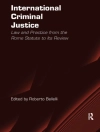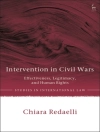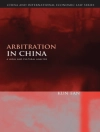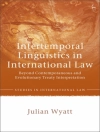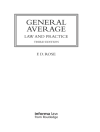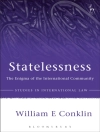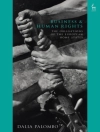This monograph offers a comprehensive analysis of the implementation of global anti-money laundering and counter-terrorism financing (AML/CTF) regulations in the United States and the European Union. It provides academics, legal professionals and interested readers with a deep understanding of the developments of the AML/CTF legal framework and guides them into the dimension of its most difficult relation with international and European human rights law.
The implementation of global anti-money laundering regulations in the United Stated and the European Union has essentially led to the suspension of laws governing privacy and bank secrecy. Banks and other financial institutions now operate as an extension of law enforcement. The current Anti-Money Laundering regime jeopardises the fundamental achievements of the constitutional state. The increasing centralisation and cooperation of the competent authorities in the exchange of personal data information creates a security architecture that leads to a considerable risk of freedom restriction. In particular, the extension of the authorities´ power of intervention granting them access to citizens´ personal data without the need for initial suspicion underlines that a substantial part of the constitutional state is at risk. Furthermore, banks appear to use these policies as an instrument to clear legitimate but less profitable customers, in particular those with a migration background. Consequently, the implementation of the AML/CTF legal framework appears to follow a discriminatory path and clearly discloses incompatibility features with respect to the European Convention on Human Rights and Article 21 of the Charter of Fundamental Human Rights of the European Union. This monograph further explores factors contributing to the inefficiency of AML/CTF regulatory and legislative measures. Such factors are identified in inconsistent rules, which make the cooperation among national investigative authorities within the EU and at an international level more challenging. As a result, this work acknowledges regulatory and legislative harmonisation with respect to AML/CTF regimes as a central tool to successfully improve the effectiveness of AML/CTF regimes, while preserving the individual right to privacy, due process and civil rights.
Tentang Penulis
Dr. Michele Sciurba, born 1968 in Palermo, Italy, studied Common and International Law at the University of Liverpool and Administrative Law at the Interregional Academy of Personnel Management in Kyiv. He was a member of the European Industrial Relations Observatory (EIRO) and worked as a lecturer for industrial and operating policies. During his career, he advised various government organisations concerning economic development issues (2008 e.g. he participated in the High Level Conference on World Food Security of the Food and Agriculture Organisation (FAO) in Rome). Sciurba is active for NGOs in the field of international law and human rights issues as a caseworker. Since 1999, he is managing director of the Frankfurt-based think tank GMVV & Co. Gmb H.
Besides, Michele Sciurba is a journalist for national and international media, including the ‘Journal Frankfurt’ and the Ukrainian Newspaper ‘Kyiv Post’. He is also a columnist for the international magazine ‘Impakter’ and published various essays on legal and socio-political issues.
Dr. Michele Sciurba studierte Philosophie in Frankfurt und Rom. Im European Industrial Relations Observatory (EIRO) wirkte er u.a. als Dozent für Industrie- und Betriebspolitik. Seit 1999 arbeitet er als strategischer Berater bei Cross-Border-Transaktionen im Energiesektor. Außerdem berät er Regierungsorganisationen bei ökonomischen Entwicklungsfragen und betätigt sich zunehmend in Zusammenarbeit mit verschiedenen NGOs im Bereich völker- und menschenrechtlicher Fragen. Von 2005-2013 arbeitete er als Diplomat in Rom und Brüssel. Absolviert derzeit einen Masterstudiengang in International Law an der University of Liverpool.
2010 gründete Michele Sciurba die Galerie Art Virus Ltd. in Frankfurt am Main, in der über die Galeriearbeit hinaus regelmäßig non-profit-orientierte Kunst gefördert wird. 2014 gründete er gemeinsam mit Werner Ost den Verlag Edition Faust.


